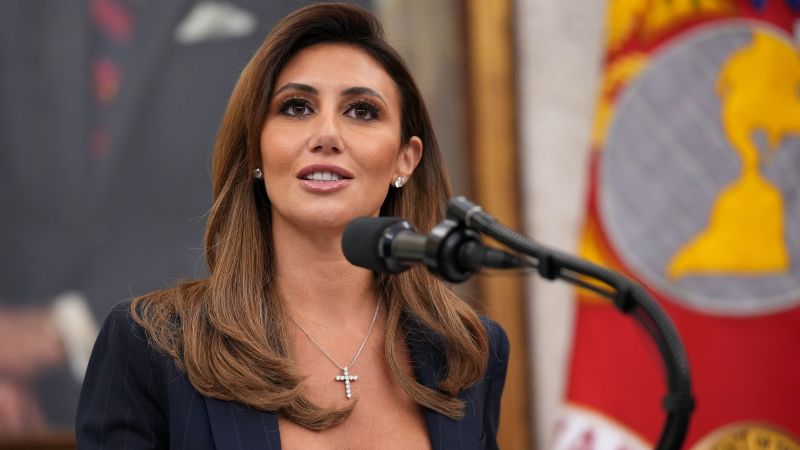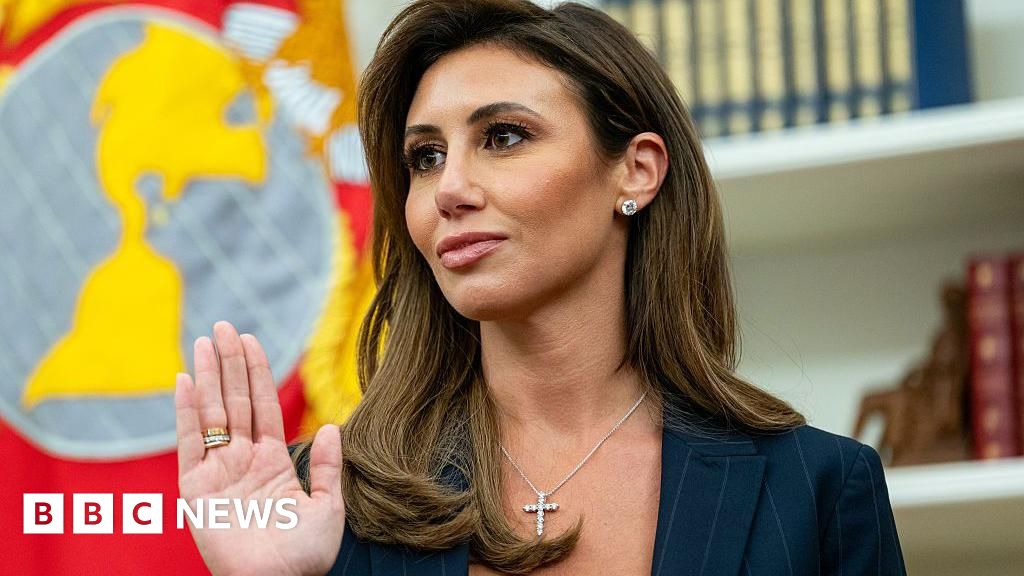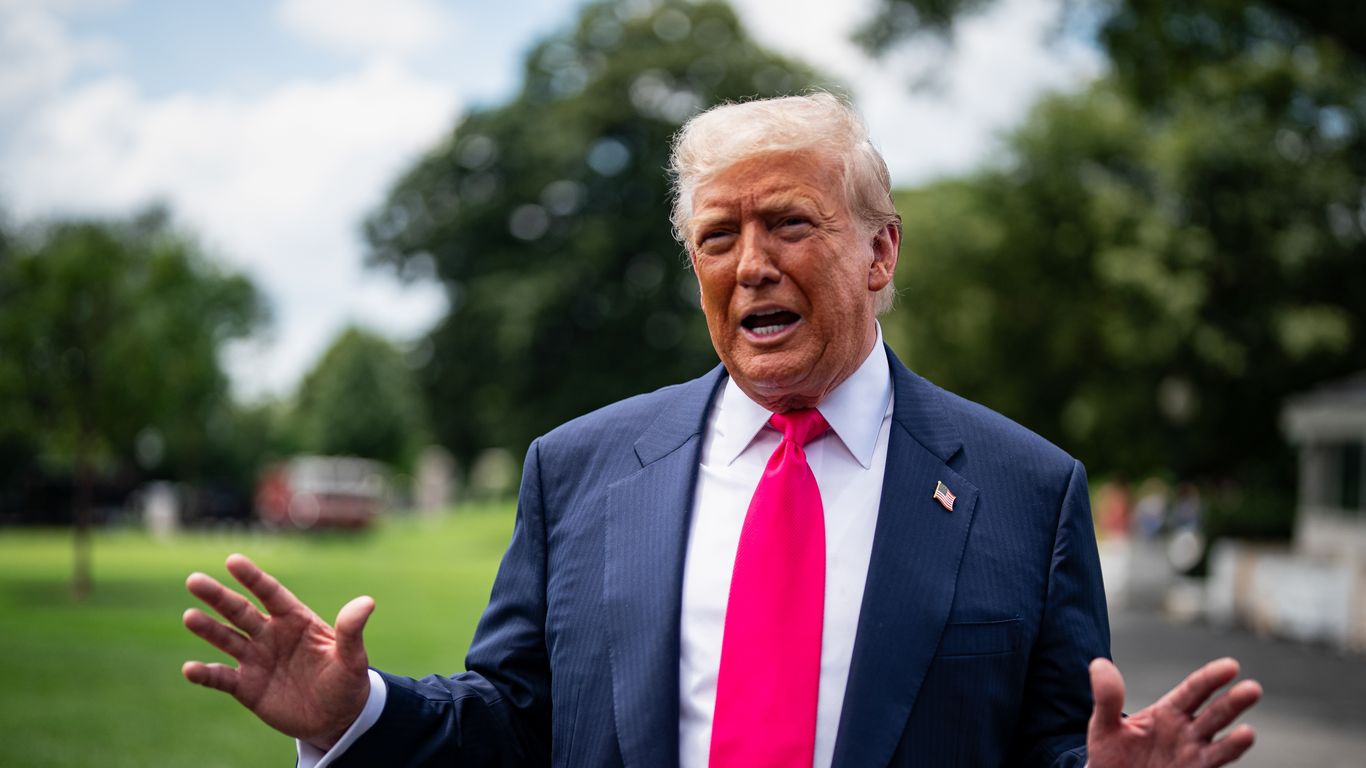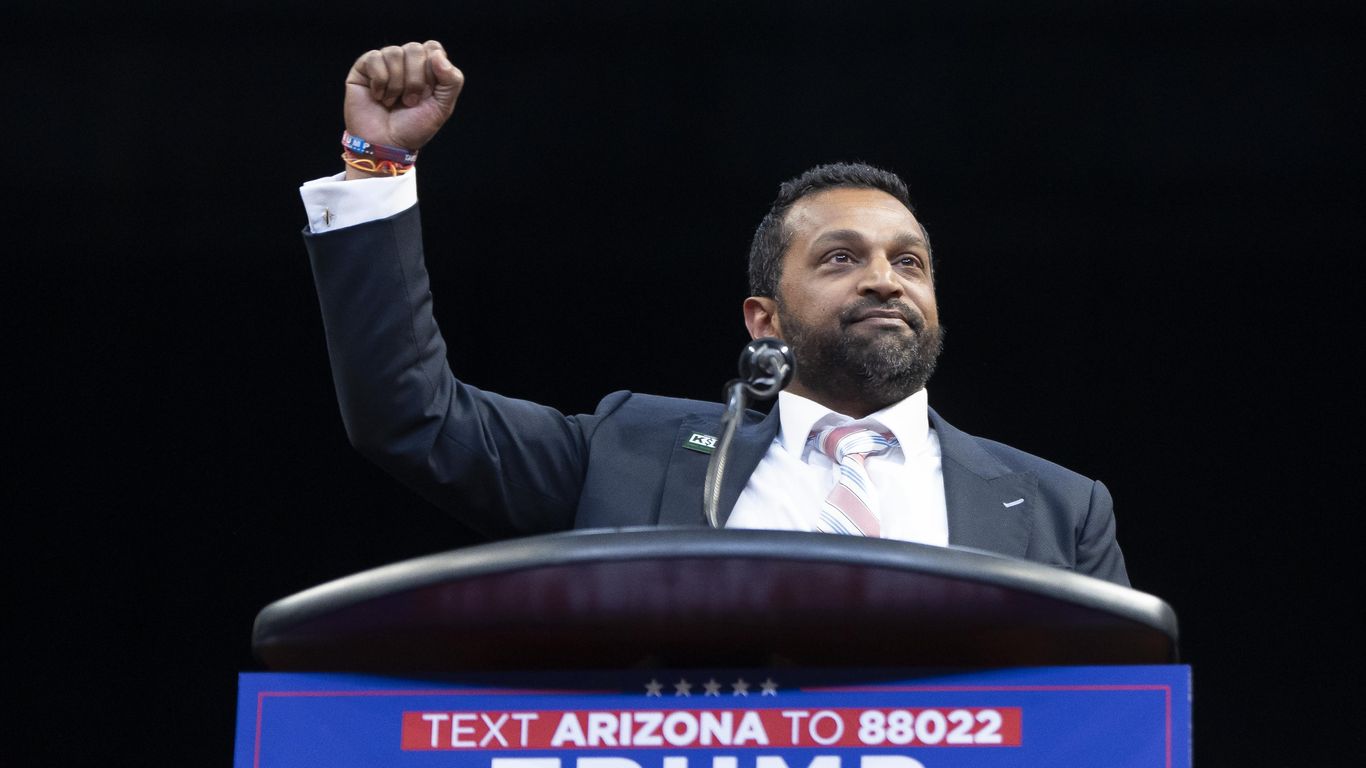Controversy Surrounding the DOJ's Handling of US Attorney Appointments

Introduction
The Department of Justice (DOJ) has made headlines once again after it quickly fired the newly named US attorney in New Jersey, Alina Habba, on Tuesday. This came after federal judges in the state voted against extending Habba's interim appointment, leading to her swift removal from the role.
Key Details
Habba's appointment as US attorney in New Jersey had been short-lived, as she was only named to the position in January. Prior to this, she had been serving as an interim US attorney since last year, after the former US attorney, Craig Carpenito, resigned. However, her appointment was met with controversy and legal challenges.
The judges' vote to not extend Habba's interim appointment was a blow to the DOJ, especially considering she was the first woman to be appointed as US attorney in New Jersey. This decision has raised questions about the DOJ's handling of interim appointments and the potential impact on cases currently being prosecuted by Habba's office.
Impact
The sudden firing of Habba has caused uncertainty and disruption within the DOJ and the US attorney's office in New Jersey. It also highlights the ongoing challenges and controversies within the DOJ under the current administration. This decision serves as a reminder that positions within the government, even at the highest levels, are not immune to sudden changes and political influence.
About the People Mentioned
Alina Habba
Alina Saad Habba, born on March 25, 1984, in Summit, New Jersey, is an Iraqi-American lawyer who has made significant strides in the legal world. She is currently the managing partner of Habba, Madaio & Associates LLP, a role she assumed after establishing her own firm in 2020[1][3]. Before pursuing law, Habba worked in the fashion industry, notably at Marc Jacobs, which showcases her diverse career path[1]. Habba earned her Juris Doctor degree from Widener University Commonwealth Law School in 2010. Following her graduation, she clerked for New Jersey Superior Court Judge Eugene Codey Jr., gaining valuable experience in the legal system[1][2]. Her career has been marked by work in prestigious law firms and her role as a law clerk, which laid the foundation for her future success[2]. In 2021, Habba became a legal spokesperson for former U.S. President Donald Trump, handling high-profile cases such as Trump's lawsuit against the New York Times and his niece, Mary Trump[1][3]. Her involvement in these cases has drawn significant public attention and highlighted her legal expertise. As of recent events, Alina Habba has been named the Acting U.S. Attorney and Special Attorney to the United States Attorney General for the District of New Jersey, overseeing federal criminal prosecutions and civil matters in New Jersey[4]. Additionally, in December 2024, Trump appointed her as his counselor to the president[3]. These roles underscore her influence and role in the legal and political landscape. Throughout her career, Habba has demonstrated resilience and legal acumen, making her a notable figure in both the legal community and the public eye. Her journey from fashion to law and her rise to prominence in high-profile legal cases have been significant aspects of her professional trajectory.
About the Organizations Mentioned
Department of Justice
The **United States Department of Justice (DOJ)** is a federal executive department responsible for enforcing federal laws, ensuring public safety, defending the interests of the United States, and upholding civil rights. Established in 1870 to consolidate federal legal affairs under the Attorney General, the DOJ has grown into a vast organization with over 115,000 employees and a budget exceeding $22 billion[1][4][5]. It operates through more than 40 component organizations, including prominent law enforcement agencies such as the Federal Bureau of Investigation (FBI), Drug Enforcement Administration (DEA), Bureau of Alcohol, Tobacco, Firearms and Explosives (ATF), and the U.S. Marshals Service[1][4][5]. The DOJ’s core mission is to uphold the rule of law, keep the nation safe, protect civil rights, and ensure a fair and impartial administration of justice across federal, state, local, tribal, and international levels[2][5]. It investigates and prosecutes federal crimes, including terrorism, drug trafficking, organized crime, financial fraud, and cybercrime. The FBI, as the DOJ’s principal investigative arm, leads in areas such as counterterrorism, counterintelligence, and cybercrime[6]. Additionally, the DOJ manages federal prisons and provides leadership and resources to state and local law enforcement agencies. Historically, the DOJ’s origins trace back to the Judiciary Act of 1789, which created the Attorney General's office. Its establishment as a separate department in 1870 allowed for greater coordination of federal law enforcement and legal representation of the government[2][4]. Over time, the DOJ has played a critical role in landmark civil rights enforcement, combating organized crime, and adapting to modern challenges such as cyber threats and international criminal cooperation[1][5]. Today, headquartered in Washington, D.C., with field offices nationwide and abroad, the DOJ continues to influence national security and justice policy, balancing traditional law enforcement with evolving technological and societal demands.
🔗 Connected Events Overview
Discover related stories and their connections to this article
📊 Quick Insights
📅 Connected Events Timeline
Explore connected events with detailed insights and relationships
👥 People Involved in Connected Events
Connected through:
Connected through:
🏢 Organizations & Products
Key entities mentioned across connected events
🏢 Organizations
🛍️ Products
💡 Connected Events Insights
Discover patterns and trends across related stories
🔥 Trending Topics
Trending Blogs in Politics

Missing FBI Records Spark Epstein Files Controversy
CNN review finds dozens of FBI witness interviews missing from Epstein files, fueling questions about transparency.

Trump Administration Escalates Iran Pressure: Sanctions, Diplomacy, and Military Contingencies
Trump escalates pressure on Iran with sanctions, talks, and possible military options as negotiations resume.

White House Strategy: Israel Might Strike Iran First
Exploring White House push for Israel to strike Iran first, amid worries of retaliation, casualties, and political calculations.

Federal Crackdown on Medicaid Fraud: Minnesota First, Nationwide Expansion
Trump administration unveils an aggressive crackdown on healthcare fraud, freezing Minnesota funds and expanding Medicare/Medicaid integrity nationwide.

Trump's Bold State of the Union: Live Updates on a Secure Border and Booming Economy
Live updates on Donald Trump's state of the union address, highlighting border security, a booming economy, and executive orders.











